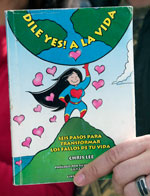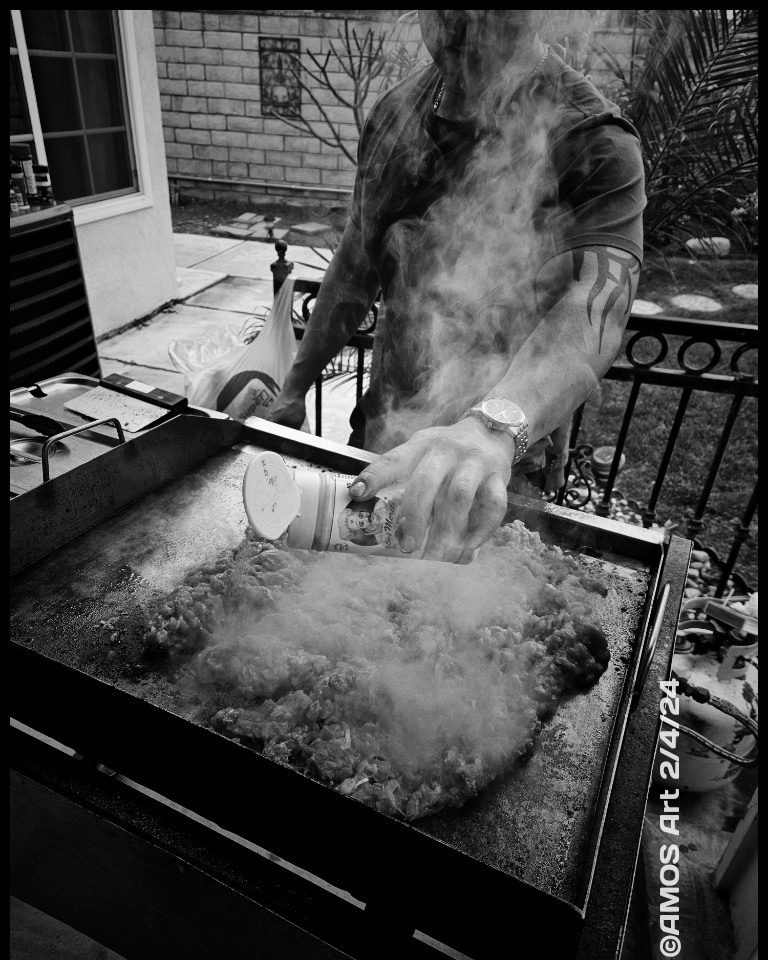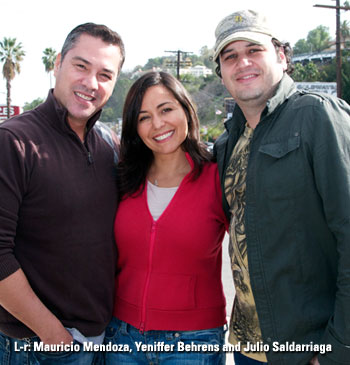 An urban/political thriller with a powerful spiritual message is the result of years of work by Latino professionals in front and behind the camera…and the journey has just begun
An urban/political thriller with a powerful spiritual message is the result of years of work by Latino professionals in front and behind the camera…and the journey has just begun
We Se Fija! folks have known Yeniffer Behrens for quite a while now. We’ve watched her grow through her performances in indie films, shorts, and even General Hospital. And Mauricio Mendoza has been a hard-working Latino character actor for decades—one of those talented types whose face is familiar the minute you see him. Over the past couple of years a remarkable team as come together, including actors Melina Lizette, Carlos Acuña, writer/director Julio Saldarriaga, who co-wrote and produced the film with Andres Barahona, through their production company Filigrana Films. Together, they have created The Shifting, an independent feature that defies description. It’s a street-level thriller, a political drama, a story about secrets, lies, courage, child abuse, honor and the end of the world. And that doesn’t begin to tell the story. The movie is inspired by a book called Dile Yes a la Vida! by Chris Lee, a Puerto Rican and a motivation trainer; you can learn more about him here.
And you can see an extended preview right here:
We got a chance to sit down with our old friends Yeniffer, her fiancé and star of the film Mauricio, and director Julio Saldarriaga about the long and life-changing journey that is The Shifting. The conversation took place at Studio City’s legendary Jerry’s Deli.
So how did this all begin?
“I’ve been an actor for sixteen years,” Yeniffer said. “I’ve always wanted to create my own stories and be on the other side of the business. Because I’m kind of bossy like that.” She was actually part of the producing team on several films, and The Shifting is the latest one. It was also a beautiful alignment. We took our footage to AFM and the response was so amazing…everybody wants to see the film. We’re planning on doing the whole festival circuit, and that’s where it’s super-exciting: now the baby is about to be born. For me, it’s an honor and a pleasure to be working with Julio and, of course, the love of my life.”
Julio couldn’t help but laugh at that. “Make sure it’s clear the love of her life isn’t Julio,” he told us. I could get in a lot of trouble.”
Mauricio agreed with Yeniffer. “Usually,” he said, “as an actor, your job is done the last day of your shoot. But the chemistry between us and the other producers, specifically Andres–well, it was meant to be. We were meant to meet.”
“Kindred spirits,” Yeniffer chimed in. “Definitely.”
Working with your brothers and sister
Part of the power of the partnership, Mauricio said, was the ethnic unity they felt. “As a child,” he said, “growing up in the United States, I always wanted to do films with Colombians. Last year, I saw a film at the Latin Film Festival made by Venezuelans.”
“El Bracero,” Yeniffer remembered.
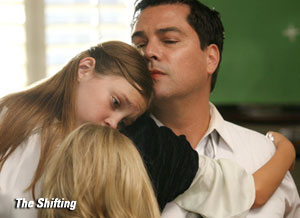 “It was an incredible movie,” Mauricio said, “and I was sitting there feeling jealous. I asked myself, ‘Why don’t I have a team of people like this? So I called Julio and said, “Dude, we have got to finish this film. We have to make this happen. You tell me whatever it is you need.”
“It was an incredible movie,” Mauricio said, “and I was sitting there feeling jealous. I asked myself, ‘Why don’t I have a team of people like this? So I called Julio and said, “Dude, we have got to finish this film. We have to make this happen. You tell me whatever it is you need.”
Mauricio loved the concept of The Shifting. “The whole concept of the movie was to show these two Latino families, these two guys: one who had it all a politician, a councilman, all the way up, and this guy who is just coming out from rehab, out of the gang life, focusing on making something out of himself because of his daughter. He’s on a good, level track. The idea was for these two to work together and see how the guy who doesn’t have it all, his life is harmonious, while the guy who has it all, his life is a mess. It’s very complicated, convoluted. That’s what I loved about the script–the opposite sides of the culture, which you don’t see in a lot of our television. You either see the gang life and that’s it, or it’s Resurrection Boulevard, where you see a middle-class family. This shows both at the same time.”
Breaking stereotypes, changing expectations
One of the interesting details is the lack of accents in the film. Both Yeniffer and Mauricio’s characters speak English with little or no accent at all. “If the characters in the film do have accents,” Mauricio said, “they were real. We didn’t say, ‘You have to have an accent.’ My guy–his character, Delgado, lived in Mexico. I should have had a tinge of an accent. But they didn’t ask for it, and I just did my natural thing.”
Director Julio Saldarriaga felt the power of the Latino community, too. “For me, it was very important to tell the story. I’ve been living here for the last twelve years, working for that community. I was very involved in the family, with their vibe, how they perceived life. When I was working on filming all these television shows, I would go into the barrios and film on location.” He was especially impressed by the people he met when filming a reality show in East L.A. that it really hit home. “We followed a Mexican folk band through their day, as they prepared themselves during the day to play at night. Not one of them spoke Spanish without an accent; everybody spoke English perfectly. They were born and raised here in Los Angeles, second or third generation. They have friends in the Gangs, but they’re trying to get out with their music. And I thought, ‘Wait a minute, there’s a story here.”
“And it’s our responsibility to tell those stories,” Yeniffer said.
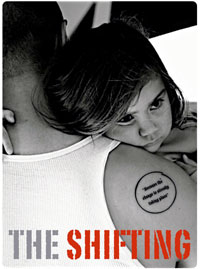 “An Interesting Process”
“An Interesting Process”
“This is Julio’s first directorial effort,” Mauricio said.
“But not his last!” Yeniffer said, with great affection.
“You would never have known it when he was on set,” Mauricio. “I didn’t know. We were very simpatico.”
We had a very interesting process,” Julio told us. “”I don’t know if its a formula that would apply to anybody, but it was my own formula: I partnered with a casting director and acting coach, Jolene Adams. She started reading the first draft, said, ‘Listen, this is great; let’s do the casting very differently. Let’s cast this as a stage play.’ Then we had actors come in and have readings a lot of those actors went to these first readings, and my commitment to them was, ‘If the project gets greenlighted, we’ll use you.’ Melina Lizette came out of that,” he recalled. “and Carlos Acuña. Eddie Ruiz, too.”
“We need to start opening eyes and educating people,” Mauricio told us. Not everybody has an accent; there are many very educated Latinos. We’re not all gang-bangers in the barrio, and if there are people like that, they’re trying to do what our characters are doing: make a better life for themselves.”
“It’s a universal theme, this movie,” Yeniffer says.
And they have high hopes for it. Yeniffer–never short on enthusiasm–lights up at the future prospects. “We’re going to do the festival circuit,” she said. “We’re definitely hoping to sell it and for it to be a sleeper. We’re talking theatrical release, even if it’s limited–and I think it merits that–and get distribution for it worldwide. That’s the goal; that’s what we’re reaching for.”
Mauricio is especially impressed as the commitment that everyone has shown. “What these guys have done,” he said, impressed by the entire project,” They didn’t have big names attached to the film, and it’s difficult to sell a movie that doesn’t have a celebrity. But they took a chance…and that’s what I love about Julio. He took a chance on some unknowns to make this film happen.”
 The Shifting is in post-production now, and it will be appearing in film festivals very soon. We’ll be keeping an eye on it, and we won’t be the only ones. Yeniffer, Mauricio, producers Andres Barahona and Eddie Ruiz, and the rest of the cast and crew have created an experience on film and in the Latino film community that’s likely to extend far beyond the film itself. And we can’t wait to see it happen.
The Shifting is in post-production now, and it will be appearing in film festivals very soon. We’ll be keeping an eye on it, and we won’t be the only ones. Yeniffer, Mauricio, producers Andres Barahona and Eddie Ruiz, and the rest of the cast and crew have created an experience on film and in the Latino film community that’s likely to extend far beyond the film itself. And we can’t wait to see it happen.
“We were talking about this just yesterday,” Yeniffer said. “We all have to stop complaining and enjoy the process. I know it’s a huge cliché, but it’s true: its about the journey, not the destination–its’ true! The more we do as a community, the more people will pay attention. We don’t have money right now, and nobody’s going to just give it to us…but if we create as a community, we can fly.”
Photo: ©2011 Angela María Ortíz S. The Shifting Photos: Guillermo Franco

